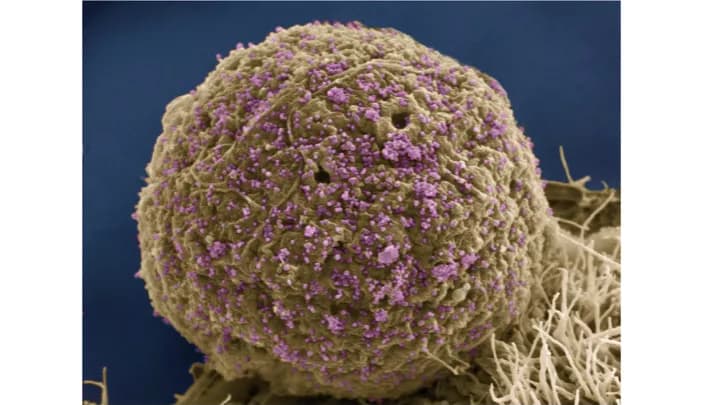
Study Seeks To Reduce Pediatric HIV Infection Rates In Africa
Mother-to-child transmission of the human immunodeficiency virus (HIV), which causes AIDS, is still a major problem in resource-limited, rural areas of the world where health care providers are scarce.
Major improvements can be made, however, even under the most impoverished and discouraging circumstances, when a family-focused and integrated package of services is implemented.
That's what researchers with the Vanderbilt Institute of Global Health (VIGH) found in a study conducted in rural north-central Nigeria. Their findings, published recently in the British medical journal The Lancet HIV, are helping to raise hopes that mother-to-child transmission of HIV will eventually be eliminated.
"We show that packaging individually effective interventions can have positive and measurable impacts on progress toward eliminating pediatric HIV infections in Africa," said first author Muktar Aliyu, M.D., MPH, DrPH, associate professor of Health Policy and Medicine and the VIGH associate director for Research.
Aliyu also discussed the results of the study at the 2016 Conference on Retroviruses and Opportunistic Infections in Boston sponsored by the International Antiviral Society-USA.
HIV infection and death rates have remained stubbornly high in Nigeria. According to a 2014 report by the Joint United Nations Program on HIV/AIDS (UNAIDS), Nigeria ranked first among all countries in the number of AIDS deaths in 2013, accounting for 10 percent of all AIDS deaths worldwide.
Nigeria is also home to the second largest number of new HIV infections among children after South Africa, Aliyu said.
Much of the problem is lack of access to antiretroviral therapy (ART), which can prevent transmission of HIV infection from mothers to their babies and, in people who are already infected, can keep the virus from spreading in their bodies.
Only two out of every 10 Nigerians who are living with HIV have access to treatment.
In their study, the Vanderbilt researchers focused on 12 rural sites in Nigeria. They randomly assigned HIV-infected women who were either pregnant or had recently given birth to receive a special package of services. Another group of women, who served as controls, got the standard level of care.
In the intervention group, men were encouraged to take part in their wives' care, and non-physician health care providers, including midwives and community health workers, were trained to provide a breadth of services as economically and efficiently as possible.
In addition, point-of-care CD4 cell count testing -- a laboratory indicator of immune system function -- was made available, and integrated mother-infant services were provided after delivery.
In both intervention and control groups ART was provided to pregnant women with HIV disease, breast-feeding mothers and infants who had been exposed to HIV by their mothers during delivery.
At the 12-week visit, the incidence of HIV infection among infants in the test group was 2.4 percent, compared to 7.3 percent in the control group -- a 74 percent reduction in the infection rate.
Culturally sensitive policies that include non-physician health care providers, engage men in the community and integrate health care services in resource-strapped settings thus can prevent maternal-to-infant HIV transmission, save lives, and improve outcomes for both mothers and their babies, the researchers concluded.
The above post is reprinted from materials provided by BMJ. Note: Materials may be edited for content and length.
Disclaimer: DoveMed is not responsible for the adapted accuracy of news releases posted to DoveMed by contributing universities and institutions.
Primary Resource:
Steele, E. M., Baraldi, L. G., da Costa Louzada, M. L., Moubarac, J. C., Mozaffarian, D., & Monteiro, C. A. (2016). Ultra-processed foods and added sugars in the US diet: evidence from a nationally representative cross-sectional study. BMJ open, 6(3), e009892.
Related Articles
Test Your Knowledge
Asked by users
Related Centers
Related Specialties
Related Physicians
Related Procedures
Related Resources
Join DoveHubs
and connect with fellow professionals

0 Comments
Please log in to post a comment.